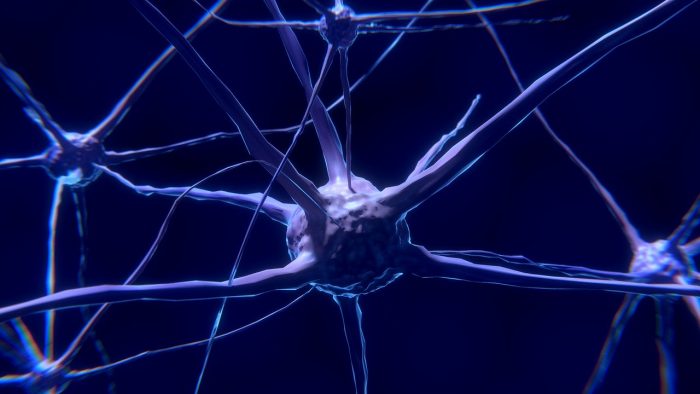It used to be that the neural pathways in our brains — which direct our thinking minds — were solely the product of the long-term memories created by our personal experiences. Our own working memories were what created those pathways based on those experiences. Searching for information, knowledge, and insights, we pulled that information out of our own networks of thought — which create our working memories, or we did the kind of research that in itself built our own personal experiences. It was an organic experience, based entirely and organically in our own brains.
But that was before Internet search engines. Now we are increasingly outsourcing our working memories to Google or some other search engine; we obsessively gravitate to them for information. So you could say — and you would not be wrong — that those same neural pathways in our brains are now being controlled and directed from the outside. The direction they take is being determined and controlled by non-organic algorithms and computer codes.
This means that as we search for information on the Web, following one link to another, or looking for possible connections on social media, the once natural pathways of our thoughts and the algorithms that control whatever site we are using are inevitably become one and the same. In how we navigate and follow the information, we are increasingly surrendering the networks of our thinking minds to powerful digital pathways. We may believe that how we navigate is the result of our own freedom to pursue however we want to, but it’s not that simple.
How Search Plays a Role
When we attempt to pull knowledge or information from our actual working memory, we have not given up free will in how we access it. We can still backtrack within our memories and follow related information that might lead toward it. We can investigate other relevant information that might clarify our search, or we can communicate with people we know who might assist us. That is, we are still in the driver’s seat in directing our working memories and networks of thought.
But when we are searching online, we’re being intentionally guided through a whole digital thicket of information. We are at the mercy of whatever virtual links we are employing: although we can still decide which link to follow, the domain in which our search takes place is limited by whatever algorithm or coding the particular search engine is using to lead us to the information. So the field of our inquiry becomes more predetermined as it grows less organic and open-ended.
What are the potential implications of experiencing this loss of mental freedom? Here are some possibilities:
Our Consciousness Grows Shallower: If Web users can be so easily physiologically habituated to making choices about where we will navigate next, that same constant outer-directed decision-making process may also prevent us from sinking fully into an article or other piece of writing while online. Whereas if we were we simply reading a bound book, magazine or newspaper, we would have a significant amount of control over where our attention might take us next.
It also appears that our brains are actually being rewired as we become more effective at navigating the Web. At the same time, we are less able to focus attentively on our own thoughts or the details of our world, or to sink into a piece of writing or an extended conversation with someone. That may detract from the arduous task of carefully examining our thinking minds and memories in our search for a larger intelligence beyond them.
Our Emotional Lives Become Diluted. As our thinking minds are dulled by a daily stream of disembodied onscreen images, we’re being prevented from fully participating in the real world. And the algorithms and coding within our digital devices lead us to ever more inorganic images, which don’t allow for the same level of impressionistic depth that real world events and interactions with others do.
Further, the intense stimulation of virtual images moving across our computer or phone screen tends to produce a habitual, addictive excitement. As we become more addicted, we give up a certain amount of control as to where we will navigate next, becoming ever more of a willing victim of this addictive cycle — as the sterile images on our screen flatten our emotive lives even further.
Our Attempts to Navigate Our World are Stifled. As our thinking minds become increasingly subservient to the digital pathways that continually direct them, we become less able to bring our thoughts to a point of completion. That is, as the natural stream of our thoughts becomes increasingly part of the fragmented, jumpy, interruptive nature of the digital world that is continually directing them, and as we become ever more willing participants in this process, we become less able to apprehend complex personal, social, or political situations. Instead, we are in increasing danger of coming up with incomplete, less than fully realized solutions to our problems, be they personal or part of the larger society in which we live.
Whether it’s how to best deal with the current coronavirus pandemic, how to find effective solutions to racial injustice in our society, or how to best handle financial stress in the midst of an economy shut down by the pandemic, we need to be able to think. But if we can’t carry our own thoughts to a natural point of completion, it’s harder to come up with creative, outside-the-box solutions.
This is a time when we need more perspective; when we need more bridges to our own imagination; when we need to be able to follow our own thought processes and access our own inner lives and emotions. The question is, given the impact of digital pathways on our mental freedom, can we? Perhaps if we are more aware of what’s at stake, we can reconsider our addiction to the Web and to digital devices, reclaim our own intellectual and emotional lives, and better face the challenges of today.


 Share on bsky
Share on bsky





Read 0 comments and reply